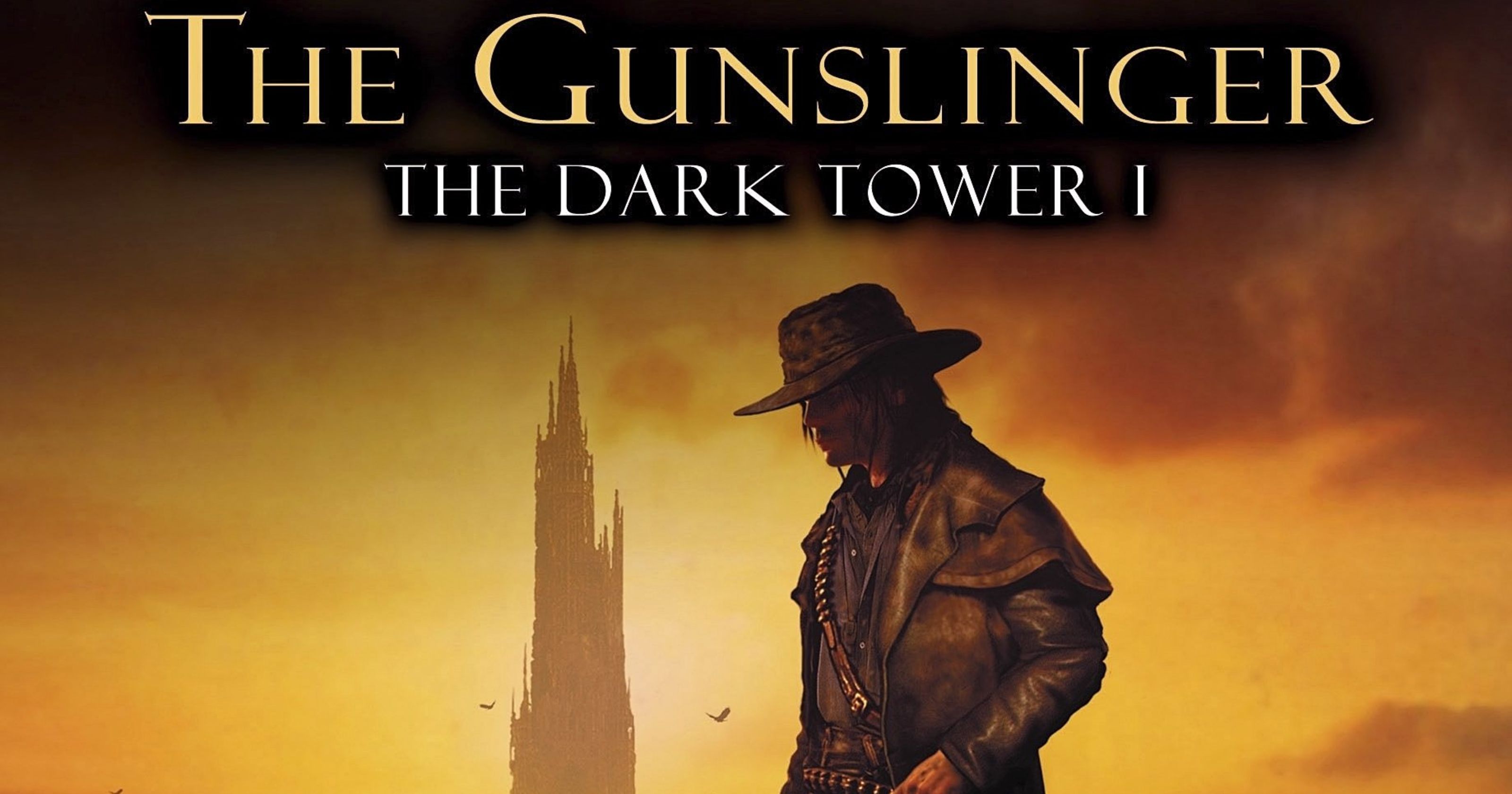
The Gunslinger is the first novel in The Dark Tower, Stephen King’s classic, epic cross-genre series. It introduces the reader to the last gunslinger, Roland of Gilead, as he pursues The Man in Black across a vast land laid to waste. The setting is part Wild West, part medieval fantasy, and part far-future dystopia. King started writing the novel when he was just 19, and he was heavily influenced by both The Lord of the Rings and by The Good, The Bad, and the Ugly; the book wears both influences very well.
There’s a lot to admire in the novel: the epic scope, the adventure, the shivery horrors. But one thing the novel doesn’t handle especially well is its depiction of female characters.
Early on in King’s novel, there’s an interesting bit of description and foreshadowing with regard to the wind, which is blowing hallucinogenic smoke towards Roland:
The wind moaned, a witch with cancer in her belly. … The gunslinger occasionally moaned with the wind. (King 8).
The book has the kind of structural sexism that one frequently finds in male-written fairy tales. In this narrative (but interestingly not in later books in the series, which feature far better-rounded female characters), women are enchantresses and whores whom the gunslinger doesn’t see as human in the way that he sees other men as human: they’re witches, all. They are part of a degraded, menacing landscape that constantly threatens both the gunslinger’s life and his sworn quest to find the Dark Tower. But their role as antagonists and distracting traps is not due to intentional evil on their parts; they simply act according to their natures, like the wind. And like the rest of the gunslinger’s world, they are victims of (or outright possessed by) the cancerous evil that is overtaking the universe.
The moaning of the wind also echoes the witchy women’s blatant (and therefore threatening) sexualities. But the gunslinger, whose old-school masculinity is tied to his cocksmanship as much as it is to his marksmanship, is prepared to brave their dangers and moan along with them:
“I guess maybe you know my price,” she said. “I got an itch I used to be able to take care of, but now I can’t.”
He looked at her steadily. The scar would not show in the dark. Her body was lean enough so the desert and grit and grind hadn’t been able to sag everything. And she’d once been pretty, maybe even beautiful. Not that it mattered. It would not have mattered if the grave-beetles had nested in the arid blackness of her womb. (King 26)
Even the sexualities of tertiary female characters seem antagonistic:
A full-grown one, blond, dirty, and sensual, watched with a speculative curiosity as she drew water from the groaning pump beside the building. She caught the gunslinger’s eye, pinched her nipples between her fingers, dropped him a wink, and then went back to pumping. (King 42)
Later, he literally uses his firearm to bring another witchy woman character (a small-town preacher) to orgasm:
He rammed the barrel of the gun forward. He could feel the terrified wind sucked into her lungs more than he could hear it. Her hands beat at his head; her legs drummed against the floor. And at the same time the huge body tried to suck the invader in. Outside nothing watched them but the bruised and dusty sky. She screamed something, high and inarticulate.
“What?”
“He stops … on the other side … s-s-sweet Jesus! … to m-make his strength. Med-m-meditation, do you understand? Oh..I’m..I’m….”
The whole huge mountain of flesh suddenly strained forward and upward, yet he was careful not to let her secret flesh touch him. (King pp. 58-59)
When I read that passage, I think I said “Woooow” loud enough to wake up my seatmate on the airplane. The gunslinger has faced down death in a thousand forms and shot down hundreds of people … but he’s scared of touching a woman’s vulva? That’s epic. Later on in the novel, the gunslinger faces a formless demon that is literally female lust incarnate. Given the other women’s portrayals, I expected that escalation.
In his updated introduction, King doesn’t address this incredibly hoary brand of Western hero sexism. Given that he started writing the Dark Tower series when he was still a teenager, it’s not surprising that he might consciously or unconsciously view women who are in charge of their own libidos as being as scary as clawed mutants or slavering sea monsters. Still, when one looks at his later novels (The Girl Who Loved Tom Gordon springs to mind) or even the second book in The Dark Tower series, it’s clear that he’s come a long way from this early depiction of women.
Works Cited
King, Stephen. The Dark Tower: The Gunslinger. New York: Penguin Group, 2003. Kindle.
Leave a Reply
You must be logged in to post a comment.